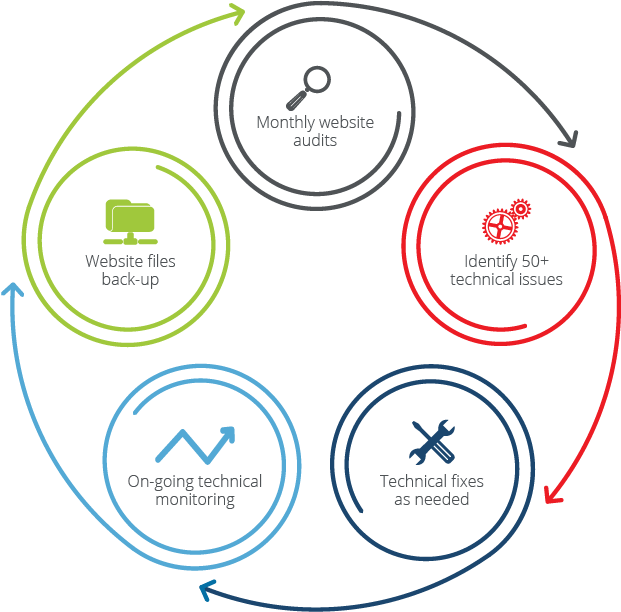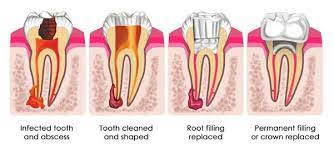In the realm of digital marketing, SEO is a familiar term.
Yet, the concept of Technical SEO often remains shrouded in mystery.
This article aims to demystify Technical SEO. It will provide you with a comprehensive guide to mastering this crucial aspect of SEO.
Technical SEO refers to the process of optimizing your website for the crawling and indexing phase. It’s about making your website easy to understand, crawl, and index by search engines.

But why is Technical SEO important?
It’s simple. Without a technically sound website, your other SEO efforts may not yield the desired results.
Your high-quality content and well-researched keywords won’t matter if search engines can’t crawl and index your site.
In this guide, we’ll delve into the intricacies of Technical SEO. We’ll provide you with a detailed checklist to optimize your website’s technical health.
We’ll also explore the role of Technical SEO agencies and consultants. You’ll learn when it’s beneficial to seek their expertise.
Moreover, we’ll discuss how to measure the impact of your Technical SEO efforts.
Finally, we’ll look at the future of Technical SEO. We’ll discuss emerging trends and the importance of staying updated.
Whether you’re a website owner, a digital marketer, or an SEO specialist, this guide is for you.
Let’s embark on this journey to master Technical SEO for better rankings.
Understanding the Fundamentals of Technical SEO
Before we delve into the specifics, let’s first understand the fundamentals of Technical SEO.
Technical SEO is a subset of SEO that focuses on the technical aspects of a website. It involves optimizing your website’s infrastructure to help search engines crawl and index it effectively.
The main components of Technical SEO include:
- Site architecture
- Mobile-friendliness
- Site speed
- SSL security
- Structured data
- Canonical tags
- XML sitemaps and robots.txt files
These elements play a crucial role in how search engines understand your website. They also impact your site’s visibility in search engine results pages (SERPs).
What is Technical SEO?
Technical SEO is the backbone of your website’s visibility. It’s the process of optimizing your website’s technical elements to improve its ranking in search engine results.
This involves making your website easy for search engine bots to crawl and index. It also includes improving your website’s loading speed, mobile-friendliness, and security.
In essence, Technical SEO ensures that search engines can understand and present your website in the best possible way.
Why Technical SEO is a Cornerstone for Website Success
Technical SEO is a cornerstone for website success for several reasons.
Firstly, it ensures that search engines can easily crawl and index your website. This is crucial for your website to appear in search results.
Secondly, Technical SEO improves the user experience. A fast-loading, mobile-friendly, and secure website enhances user satisfaction.
Lastly, Technical SEO can give you a competitive edge. Many businesses overlook the technical aspects of SEO. By focusing on Technical SEO, you can gain an advantage over your competitors.
In conclusion, mastering Technical SEO is essential for better rankings and overall website success.
The Technical SEO Checklist: Your Roadmap to Optimization
Now that we understand the importance of Technical SEO, let’s dive into the specifics.
We’ve compiled a comprehensive Technical SEO checklist to guide your optimization efforts. This checklist covers all the key aspects of Technical SEO, from site architecture to Core Web Vitals.
By following this checklist, you can ensure that your website is technically sound and optimized for search engines.
Let’s start with the first item on our checklist: site architecture and crawlability.

Site Architecture and Crawlability
Site architecture refers to the way your website is structured.
A well-structured website makes it easy for search engine bots to crawl and index your pages. It also improves user experience by making it easy for visitors to navigate your site.
To optimize your site architecture, ensure that your pages are logically organized and linked together. Use a flat architecture, where each page is only a few clicks away from the homepage.
Also, make sure that all your important pages are accessible through text links. This allows search engine bots to discover and index these pages.
Speed Optimization: Making Your Site Swift
Site speed is a critical factor in Technical SEO.
Search engines favor fast-loading websites. Users also prefer websites that load quickly. A slow-loading website can lead to high bounce rates and low user engagement.
To optimize your site speed, compress your images and use a content delivery network (CDN). Also, minimize the use of heavy scripts and plugins that can slow down your site.
Use tools like Google’s PageSpeed Insights to measure your site speed and get recommendations for improvement.
Mobile-Friendliness: Catering to the On-the-Go User
With the rise of mobile internet usage, having a mobile-friendly website is no longer optional.
Search engines like Google use mobile-first indexing. This means they primarily use the mobile version of your site for indexing and ranking.
To make your site mobile-friendly, use responsive design. This ensures that your site looks and functions well on all devices, from desktops to smartphones.
Also, make sure that your site loads quickly on mobile devices and is easy to navigate.
Secure Sockets Layer (SSL): Securing Your Site’s Trust
SSL is a security protocol that encrypts data transferred between a user’s browser and your website.
Having an SSL certificate is crucial for Technical SEO. It not only secures your site but also builds trust with users and search engines.
Google has confirmed that HTTPS (the result of using SSL) is a ranking signal. So, if your site is not yet secure, it’s time to get an SSL certificate.
Structured Data: Enhancing Your SERP Appearance
Structured data is a type of code that helps search engines understand the content on your site.
By using structured data, you can enhance your appearance in SERPs. This can lead to higher click-through rates and better rankings.
There are various types of structured data, including schema for articles, products, reviews, and more. Use the appropriate schema for your content to maximize your SEO benefits.
Canonical Tags and Duplicate Content Management
Duplicate content can confuse search engines and lead to ranking issues.
To manage duplicate content, use canonical tags. A canonical tag tells search engines which version of a page to index and rank.
This is particularly useful for e-commerce sites, where product descriptions can appear on multiple pages.
XML Sitemaps and Robots.txt Files: Guiding Search Engines
XML sitemaps and robots.txt files guide search engines in crawling your site.
An XML sitemap lists all the pages on your site that you want search engines to index. A robots.txt file, on the other hand, tells search engines which pages not to crawl.
Both are essential for effective Technical SEO.
Core Web Vitals: The New SEO Frontiers
Core Web Vitals are a set of metrics that Google uses to measure user experience on your site.
These include Largest Contentful Paint (LCP), First Input Delay (FID), and Cumulative Layout Shift (CLS).
Optimizing for Core Web Vitals can improve your site’s user experience and potentially boost your rankings. Use Google’s PageSpeed Insights and Search Console to measure and improve your Core Web Vitals.
Conducting a Technical SEO Audit: A Step-by-Step Guide
A Technical SEO audit is a systematic examination of your website’s technical health.
It involves checking your site for issues that could be hindering its performance in search engine results.
By conducting a Technical SEO audit, you can identify and fix these issues, improving your site’s visibility and rankings.
Here’s a step-by-step guide on how to conduct a Technical SEO audit:
- Check your site’s crawlability and indexability.
- Analyze your site’s speed and mobile-friendliness.
- Review your site’s architecture and internal linking.
- Check for duplicate content and use canonical tags where necessary.
- Ensure your site is secure (HTTPS).
- Implement structured data where appropriate.
- Check and optimize your Core Web Vitals.

Identifying and Fixing Crawl Errors
Crawl errors occur when search engine bots can’t access a page on your site.
These errors can prevent your pages from being indexed and ranked.
To identify crawl errors, use Google Search Console’s Coverage report. This report shows you which pages on your site have crawl errors.
Once you’ve identified these errors, fix them. This could involve updating your robots.txt file, fixing broken links, or resolving server issues.
Improving User Experience and Breadcrumbs
User experience (UX) is a crucial aspect of Technical SEO.
A good UX can lead to higher user engagement, lower bounce rates, and better rankings.
One way to improve UX is by using breadcrumbs. Breadcrumbs are navigational aids that help users understand their location on your site. They also help search engines understand your site’s structure.
Ensure your breadcrumbs are correctly implemented and visible on your site.
Pagination and International SEO Considerations
Pagination refers to the practice of dividing content into separate pages.
While pagination can improve UX, it can also create SEO issues if not handled correctly.
Use rel=”next” and rel=”prev” tags to help search engines understand the relationship between paginated pages.
For international SEO, use hreflang tags. These tags tell search engines which language you are using on a specific page, helping them serve the right content to the right users.
Image Optimization for Enhanced Performance
Images can significantly impact your site’s speed and performance.
Large, unoptimized images can slow down your site, leading to a poor UX and lower rankings.
To optimize your images, compress them without losing quality. Use the right file format (JPEG, PNG, WebP) based on the image’s requirements.
Also, use descriptive file names and alt text for your images. This helps search engines understand what the image is about, improving your site’s SEO.
The Role of Technical SEO Agencies and Consultants
Technical SEO agencies and consultants play a crucial role in improving a website’s technical health.
They bring expertise and experience that can help you navigate the complexities of Technical SEO.
These professionals stay updated with the latest SEO trends and algorithm changes, ensuring your website remains competitive.
They can conduct in-depth audits, identify and fix technical issues, and implement strategies that enhance your site’s visibility and rankings.
Hiring a Technical SEO agency or consultant can be a game-changer for your website’s performance.
When to Consider Hiring a Technical SEO Agency
There are several scenarios when hiring a Technical SEO agency might be beneficial.
If your website is large with hundreds or thousands of pages, managing Technical SEO can be challenging. An agency can help handle the complexity.
If you’re planning a website migration or redesign, an agency can ensure the process doesn’t negatively impact your SEO.
Finally, if your website has persistent technical issues that you can’t resolve, an agency can provide the expertise needed to fix them.
The Value of a Technical SEO Consultant
A Technical SEO consultant brings value in several ways.
They can provide personalized advice and strategies tailored to your website’s specific needs and goals.
A consultant can also offer training and education to your team, enhancing your in-house SEO capabilities.
Moreover, they can provide ongoing support and guidance, helping you navigate the ever-changing landscape of SEO.
Hiring a Technical SEO consultant can be a valuable investment in your website’s long-term success.
Measuring the Impact of Technical SEO on Your Website
Understanding the impact of your Technical SEO efforts is crucial.
It helps you identify what’s working and what needs improvement.
Measuring the impact involves tracking specific Key Performance Indicators (KPIs) and using various tools and techniques.
This process allows you to quantify your success and make data-driven decisions.
Let’s delve into the KPIs for Technical SEO and the tools you can use to track them.
Key Performance Indicators (KPIs) for Technical SEO
There are several KPIs you can track to measure the success of your Technical SEO efforts.
Firstly, organic search traffic is a key indicator. An increase in organic traffic often signifies improved visibility and rankings.
Secondly, the crawlability of your site is crucial. You can monitor the number of pages crawled per day and the crawl errors in your Google Search Console.
Lastly, page load time is another important KPI. Faster loading pages provide a better user experience and are favored by search engines.
Tools and Techniques for Tracking Technical SEO Success
Several tools can help you track your Technical SEO success.
Google Search Console is a free tool that provides insights into your site’s visibility, indexability, and usability issues.
Google Analytics can help you track organic traffic, bounce rate, and user behavior on your site.
PageSpeed Insights and GTmetrix can help you monitor your site’s loading speed.
Using these tools and techniques, you can effectively measure the impact of your Technical SEO efforts and make informed decisions.
Staying Ahead: The Future of Technical SEO and Emerging Trends
The world of SEO is dynamic.
It’s constantly evolving, with search engines regularly updating their algorithms.
To stay ahead, you need to keep up with these changes and the emerging trends in Technical SEO.
Voice search optimization, mobile-first indexing, and Core Web Vitals are some of the recent trends that have reshaped the SEO landscape.
Staying updated with these trends will help you future-proof your SEO strategy and maintain your website’s visibility in search results.
The Importance of Continuous Learning in Technical SEO
Technical SEO is not a one-time task.
It requires continuous learning and adaptation.
As search engines evolve, so do their ranking factors.
To keep your website optimized, you need to stay updated with these changes.
This involves regularly reading SEO blogs, attending webinars, and participating in SEO communities.
Continuous learning will help you stay ahead of the curve and ensure your website remains optimized for search engines.
Adapting to Algorithm Changes and New Technologies
Adapting to algorithm changes is a crucial part of Technical SEO.
When search engines update their algorithms, it can impact your website’s rankings.
Therefore, you need to monitor these changes and adjust your SEO strategy accordingly.
Similarly, new technologies like AI and machine learning are reshaping the SEO landscape.
Embracing these technologies can help you gain a competitive edge and improve your website’s visibility in search results.
Conclusion: Integrating Technical SEO into Your Overall Strategy
Mastering Technical SEO is not an overnight process.
It requires a deep understanding of how search engines work and a commitment to continuous learning.
By integrating Technical SEO into your overall strategy, you can improve your website’s visibility in search results and drive more organic traffic.
Recap of Key Takeaways
In this guide, we’ve covered the fundamentals of Technical SEO, from understanding its importance to implementing a technical SEO checklist.
We’ve also discussed the role of technical SEO agencies and consultants, and how to measure the impact of your Technical SEO efforts.
Next Steps for Mastering Technical SEO
Moving forward, it’s important to stay updated with the latest trends and algorithm changes in SEO.
Consider subscribing to SEO blogs, participating in SEO communities, and attending webinars to keep your knowledge up-to-date.
[Call to Action]
Ready to take your Technical SEO to the next level?
Contact our team of experienced SEO consultants today to discuss how we can help improve your website’s technical health and boost your search engine rankings.









Leave a Reply